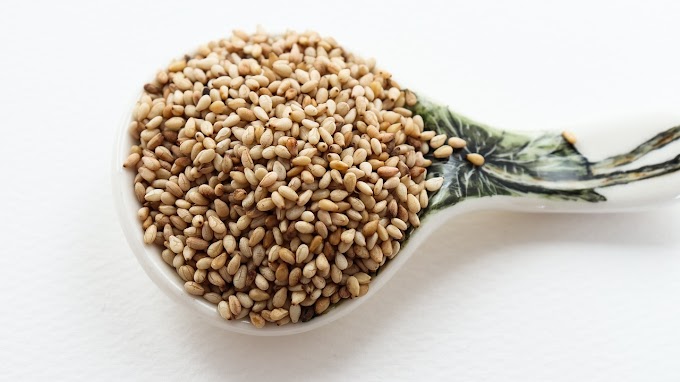Weight Loss Tips for Achieving Your Ideal Body
Introduction
Weight loss is a topic that consistently captures the attention of millions of people around the world. It's a goal for those looking to improve their health, boost their self-esteem, or simply enhance their overall well-being. While it may seem daunting, the journey to weight loss can be achieved successfully through a combination of strategies, science-backed principles, and determination. In this comprehensive guide, we will delve into the various aspects of weight loss, offering a detailed exploration of the process.
Weight Loss
Weight loss occurs when the number of calories burned surpasses the number of calories consumed. This is often achieved through a combination of lifestyle modifications, including dietary changes and increased physical activity. It's essential to recognize that not all weight loss is healthy. Rapid or extreme weight loss methods can be harmful and should be avoided. Sustainable, gradual weight loss is generally considered the most effective and safe approach.The Science of Weight Loss
The science of weight loss is rooted in the principle of energy balance. Our bodies require a certain number of calories to maintain their current weight. When we consume more calories than we burn, the excess calories are stored as fat, leading to weight gain. Conversely, when we create a calorie deficit, the body taps into its fat stores for energy, resulting in weight loss.Exercise for Weight Loss
Exercise is a critical component of any weight loss journey. Incorporating both cardiovascular exercises and strength training can significantly contribute to the calorie deficit necessary for weight loss. Aerobic exercises like running, cycling, swimming, and brisk walking can effectively burn calories and improve cardiovascular health. Meanwhile, strength training exercises such as weightlifting or bodyweight exercises can help build lean muscle mass, which can further enhance your metabolism. Aim to find a workout routine that you enjoy, as this can increase your adherence to regular physical activity.Macronutrients
When crafting a balanced diet for weight loss, it's crucial to understand the role of macronutrients. Carbohydrates, proteins, and fats are the three main macronutrients that provide the body with energy. Striking the right balance between these nutrients is vital for both weight loss and overall health. While carbohydrates are the body's primary energy source, opting for complex carbohydrates like whole grains and vegetables over refined sugars and processed foods can help stabilize blood sugar levels and promote satiety. Additionally, incorporating lean sources of protein such as poultry, fish, legumes, and tofu can aid in muscle repair and satiation. Healthy fats, found in foods like avocados, nuts, seeds, and olive oil, are essential for various bodily functions and can help you feel full and satisfied.The Role of Water Intake
Adequate hydration is often overlooked but is crucial for effective weight loss. Drinking water not only helps maintain bodily functions but can also support weight loss efforts. Consuming water before meals can help reduce calorie intake during meals by promoting a feeling of fullness. Additionally, staying hydrated can prevent dehydration-related fatigue, which might otherwise hinder your exercise routine. While the general recommendation is to drink at least eight 8-ounce glasses of water per day, individual hydration needs may vary based on factors such as activity level, climate, and overall health.The Importance of Mental Well-being
Weight loss is not solely about physical changes; it also involves mental and emotional well-being. Many individuals struggle with emotional eating, which can hinder weight loss progress. Developing a healthy relationship with food involves addressing emotional triggers and adopting mindful eating practices. Mindfulness techniques, such as meditation and yoga, can help improve self-awareness and promote a positive mindset. Cultivating self-compassion and practicing positive self-talk can also contribute to a healthier mental outlook, making the weight loss journey more sustainable and enjoyable.Addressing Plateaus and Setbacks
During a weight loss journey, it's common to encounter plateaus and setbacks. Plateaus occur when the body adjusts to changes in diet and exercise, leading to a temporary stall in weight loss. To overcome plateaus, consider adjusting your exercise routine, reassessing your calorie intake, or incorporating high-intensity interval training (HIIT) to challenge your body. Setbacks, such as overindulging or missing a workout, are normal occurrences that should not discourage you. Instead, view setbacks as learning opportunities and use them to reinforce your commitment to your weight loss goals.Long-Term Weight Maintenance
After achieving your weight loss goals, maintaining your progress is key to preventing weight regain. Transitioning to a balanced and sustainable eating plan that includes a variety of nutritious foods can help you sustain your weight loss achievements. Regular physical activity remains important for weight maintenance, as it can help you burn calories and maintain muscle mass. Additionally, staying mindful of your eating habits, tracking your progress, and regularly reassessing your goals can help you stay accountable and focused on maintaining a healthy lifestyle.Seeking Professional Guidance
While self-guided weight loss approaches can be effective, seeking guidance from healthcare professionals, such as registered dietitians, nutritionists, or personal trainers, can provide personalized support and evidence-based advice. These professionals can help create tailored meal plans, exercise regimens, and behavior modification strategies that align with your specific health goals and requirements. Furthermore, they can provide valuable insights into managing underlying health conditions and addressing any potential nutritional deficiencies that may arise during the weight loss process.Embracing a Holistic Approach
Embracing a holistic approach to weight loss involves addressing not only physical aspects but also emotional, mental, and social factors. Taking care of your overall well-being through activities that promote stress reduction, relaxation, and social connections can positively influence your weight loss journey. Engaging in hobbies, spending time with loved ones, and participating in activities that bring you joy can help alleviate stress and prevent emotional eating. By nurturing a balanced and fulfilling lifestyle, you can cultivate a positive mindset and establish sustainable habits that support long-term weight management and overall wellness.
Scientific aspects of weight loss:
Caloric Deficit: To lose weight, you must consume fewer calories than your body needs to maintain its current weight. A general rule of thumb is that a deficit of 500 calories per day can lead to a weight loss of about one pound per week.Metabolism: The rate at which your body burns calories, known as metabolism, plays a crucial role in weight loss. Factors such as age, gender, genetics, and muscle mass influence your metabolism. Building and maintaining muscle can boost your resting metabolic rate.
Nutrition: The quality and quantity of food you consume are vital in a weight loss journey. A balanced diet with a mix of macronutrients (carbohydrates, proteins, and fats) and micronutrients (vitamins and minerals) is essential for overall health and sustainable weight loss.
Physical Activity: Exercise is an integral component of weight loss. It not only helps burn calories but also preserves lean muscle mass and increases your metabolic rate. A combination of cardiovascular and strength training exercises is effective.
Weight Loss Strategies
There are numerous strategies for achieving weight loss, and it's essential to find an approach that suits your lifestyle and preferences. Here are some commonly employed methods:Balanced Diet: Focus on consuming a variety of nutrient-dense foods, including fruits, vegetables, lean proteins, whole grains, and healthy fats. Limit processed foods, sugary beverages, and excessive saturated fats.
Portion Control: Be mindful of portion sizes to avoid overeating. Using smaller plates and utensils can help you control portions and reduce calorie intake.
Regular Meal Patterns: Eating at regular intervals throughout the day can help regulate hunger and prevent overindulgence during meals.
Mindful Eating: Pay attention to your food, savor each bite, and listen to your body's hunger and fullness cues. This can prevent mindless eating and emotional overeating.
Hydration: Staying properly hydrated is important for overall health and can help control appetite. Sometimes, thirst is mistaken for hunger.
Exercise: Aim for at least 150 minutes of moderate-intensity aerobic activity or 75 minutes of vigorous-intensity aerobic activity per week, along with strength training exercises.
Behavior Modification: Address emotional and psychological factors that may contribute to overeating. Techniques like cognitive-behavioral therapy can be effective in changing eating habits.
Tracking Progress: Keeping a food diary and monitoring your physical activity can help you stay on track and make necessary adjustments.
Habits for Weight Loss
Sustainable weight loss is about adopting healthy habits that become a part of your daily routine. Here are some habits that can support your weight loss journey:Set Realistic Goals: Establish achievable, short-term, and long-term weight loss goals. This will help you stay motivated and track your progress.
Consistency is Key: Weight loss is a journey, not a destination. Consistency in your diet and exercise routines is essential for long-term success.
Support System: Seek support from friends, family, or a support group to stay motivated and accountable.
Patience: Weight loss may not happen as quickly as you'd like, and there may be plateaus. Be patient and persistent.
Sleep: Aim for 7-9 hours of quality sleep each night, as poor sleep can disrupt hormones related to appetite and metabolism.
Stress Management: Chronic stress can lead to emotional eating. Practice stress-reduction techniques like meditation, yoga, or deep breathing exercises.
Professional Guidance: Consult a healthcare provider or a registered dietitian for personalized guidance and support.
Conclusion
Weight loss is a multifaceted journey that involves scientific principles, lifestyle modifications, and personal commitment. The key to successful weight loss lies in a balanced approach that encompasses a healthy diet, regular exercise, and a commitment to lasting behavioral changes. It's important to prioritize your health, set realistic goals, and remember that sustainable weight loss takes time. By focusing on a gradual and steady path, you can achieve your weight loss goals and enjoy the benefits of improved health and well-being.
FAQ's
Is it necessary to count calories to lose weight?Counting calories can be an effective strategy for some individuals to create a caloric deficit. However, it's not the only approach to weight loss. Prioritizing nutrient-dense, whole foods and practicing portion control can also contribute to successful weight management.
How can I stay motivated during my weight loss journey?
How can I stay motivated during my weight loss journey?
Setting realistic goals, celebrating small victories, and surrounding yourself with a supportive community can help maintain motivation. Additionally, focusing on non-scale victories, such as increased energy levels and improved mood, can keep you motivated throughout your weight loss journey.
What are some healthy snacks I can incorporate into my diet?
What are some healthy snacks I can incorporate into my diet?
Opt for nutrient-rich snacks like Greek yogurt, mixed nuts, fruits, vegetables with hummus, or whole-grain crackers with cheese. These options can help curb hunger, provide essential nutrients, and prevent overindulging during meals.
How can I prevent weight regain after reaching my goal weight?
How can I prevent weight regain after reaching my goal weight?
To prevent weight regain, continue practicing healthy lifestyle habits such as regular physical activity, mindful eating, and portion control. Incorporating a variety of foods and maintaining a balanced diet can help you sustain your weight loss achievements.
Can I indulge in my favorite foods while trying to lose weight? Incorporating your favorite foods in moderation can be a part of a sustainable weight loss plan. However, it's important to be mindful of portion sizes and frequency of indulgence to stay within your calorie goals and maintain a balanced diet.
What are some effective strategies for overcoming emotional eating?
Can I indulge in my favorite foods while trying to lose weight? Incorporating your favorite foods in moderation can be a part of a sustainable weight loss plan. However, it's important to be mindful of portion sizes and frequency of indulgence to stay within your calorie goals and maintain a balanced diet.
What are some effective strategies for overcoming emotional eating?
Techniques such as keeping a food journal, identifying emotional triggers, and seeking support from a therapist or counselor can help address emotional eating. Engaging in stress-reducing activities and practicing mindfulness can also assist in managing emotional eating habits.
How can I maintain a healthy weight without feeling deprived? Focus on incorporating a variety of nutritious foods into your diet and finding enjoyable physical activities. Emphasize portion control, rather than complete deprivation, and allow yourself occasional treats in moderation to prevent feelings of restriction or deprivation.
Is it safe to follow fad diets for quick weight loss?
How can I maintain a healthy weight without feeling deprived? Focus on incorporating a variety of nutritious foods into your diet and finding enjoyable physical activities. Emphasize portion control, rather than complete deprivation, and allow yourself occasional treats in moderation to prevent feelings of restriction or deprivation.
Is it safe to follow fad diets for quick weight loss?
Fad diets often promote rapid weight loss through restrictive eating patterns, which can lead to nutrient deficiencies and have adverse health effects. Opting for a balanced and sustainable approach to weight loss is generally considered safer and more effective in the long term.
How long does it take to see significant results from a weight loss program?
How long does it take to see significant results from a weight loss program?
The rate of weight loss varies depending on individual factors such as metabolism, starting weight, and adherence to the program. While some individuals may notice initial changes within a few weeks, sustainable weight loss often occurs gradually over several months.
What should I do if I reach a weight loss plateau?
What should I do if I reach a weight loss plateau?
If you reach a weight loss plateau, consider reassessing your dietary and exercise habits. Introducing variety into your workout routine, adjusting your calorie intake, or consulting a healthcare professional can help break through the plateau and continue progressing toward your weight loss goals.







